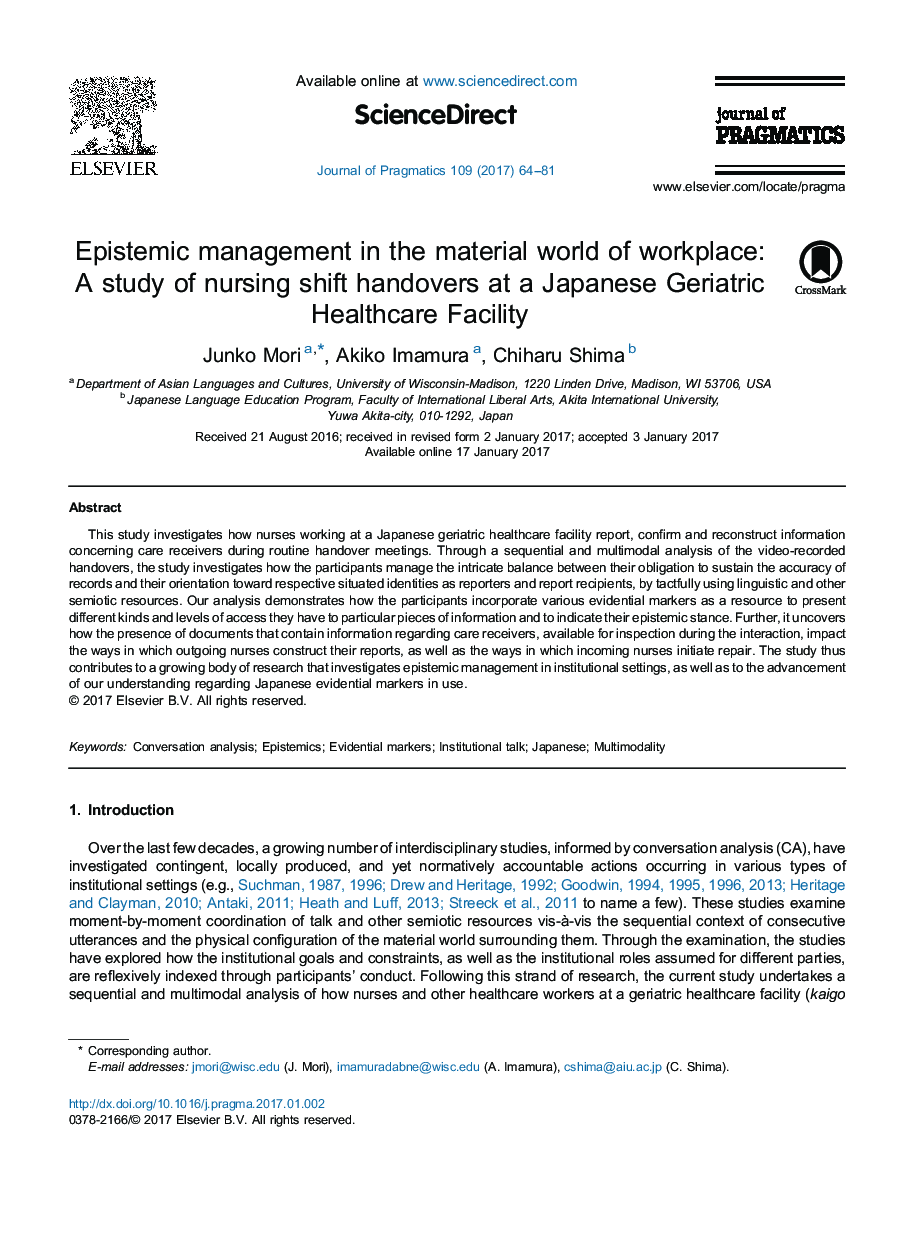| Article ID | Journal | Published Year | Pages | File Type |
|---|---|---|---|---|
| 5042746 | Journal of Pragmatics | 2017 | 18 Pages |
â¢Nurses orient to both the collective responsibility and their respective situated identities.â¢The presence of documents impacts talk-in-interaction between reporters and report recipients.â¢The use of Japanese evidential markers observed in shift handovers exhibit a unique pattern.
This study investigates how nurses working at a Japanese geriatric healthcare facility report, confirm and reconstruct information concerning care receivers during routine handover meetings. Through a sequential and multimodal analysis of the video-recorded handovers, the study investigates how the participants manage the intricate balance between their obligation to sustain the accuracy of records and their orientation toward respective situated identities as reporters and report recipients, by tactfully using linguistic and other semiotic resources. Our analysis demonstrates how the participants incorporate various evidential markers as a resource to present different kinds and levels of access they have to particular pieces of information and to indicate their epistemic stance. Further, it uncovers how the presence of documents that contain information regarding care receivers, available for inspection during the interaction, impact the ways in which outgoing nurses construct their reports, as well as the ways in which incoming nurses initiate repair. The study thus contributes to a growing body of research that investigates epistemic management in institutional settings, as well as to the advancement of our understanding regarding Japanese evidential markers in use.
